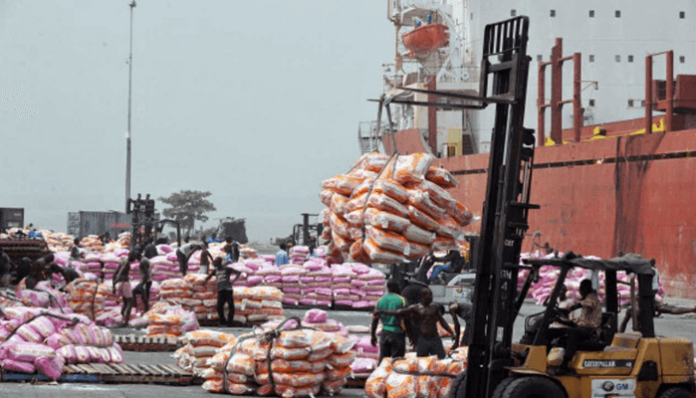Household welfare diminishes as inadequate local production conspires with inflation
By Jeph Ajobaju, Chief Copy Editor
Household food and beverage imports rose 71.12 per cent between the third quarter of 2018 (Q3 2018) and Q3 2022, as gleaned from Foreign Trade Statistics report newly released by the National Bureau of Statistics (NBS).
The imports were classified into primary and processed foods for households.
Primary food and beverage imports cost N84.84 billion in Q3 2018 and processed foods N77.41 billion; a total N162.25billion.
Primary food and beverage imports consumed N153.82 billion in Q3 2022 and processed foods N123.82billion; a total N277.64 billion.
The International Monetary Fund (IMF) recently warned the food crisis ravaging Nigeria and other Sub-Saharan African (SSA) countries is exacerbated by over-reliance on imported foods.
A new report by the IMF titled, “Africa Food Prices Are Soaring Amid High Import Reliance”, said staple food prices in SSA surged an average 23.9 per cent from 2020 to 2022 – the most since the 2008 global financial crisis.
The report noted the increase was commensurate with an 8.5 per cent rise in the cost of a typical food consumption basket (beyond generalised price increases), according to The PUNCH.
Global factors were partly to blame because of the region’s imports of top staple foods, and the pass-through from global to local food prices was significant.
In Nigeria, the prices of both cassava and maize more than doubled, even though they were mainly produced locally.
“We estimate that a 1 per cent increase in the consumption share of a staple food raises the local price by an average 0.7 per cent. The effect is even bigger when a staple is mostly imported, raising the price by about 1.2 per cent.”
_______________________________________________________________
Related articles:
Agricultural imports rise 10% to N512.91b
Nigeria set to rise from rice importer to exporter
Nigeria’s excessive taxation driving food and beverage factories to neighbouring countries
__________________________________________________________________
Consequences of depending on imports
“When a country’s net import dependence increases by 1 per cent, the local real cost of a highly imported staple is expected to increase by an additional 0.2 per cent,” the IMF said, per reporting by The PUNCH.
“The relative strength of a country’s currency is another driver as it affects the costs of imported food items.
“We find that a 1 per cent depreciation in real effective exchange rates increases the price of highly imported staples by an average 0.3 per cent.”
Nigeria’s headline inflation reached a new high of 21.47 per cent in November 2022 from 21.09 per cent in October 2022, the highest in 17 years, according to the Consumer Price Index report released by the National Bureau of Statistics (NBS)
The reason the NBS gave for the increase year-on-year (YoY) was the hike in the cost of importation due to relentless currency depreciation and a general rise in the cost of production, including energy.
The month-on-month (MoM) increase was attributed to the sharp rise in demand in the festive season.
Food inflation rate grew 24.13 per cent YoY; 6.92 per cent higher than 17.21 per cent in November 2021.
The World Bank has alerted Nigeria may have one the highest inflation rates globally with increasing prices diminishing the welfare of households.













